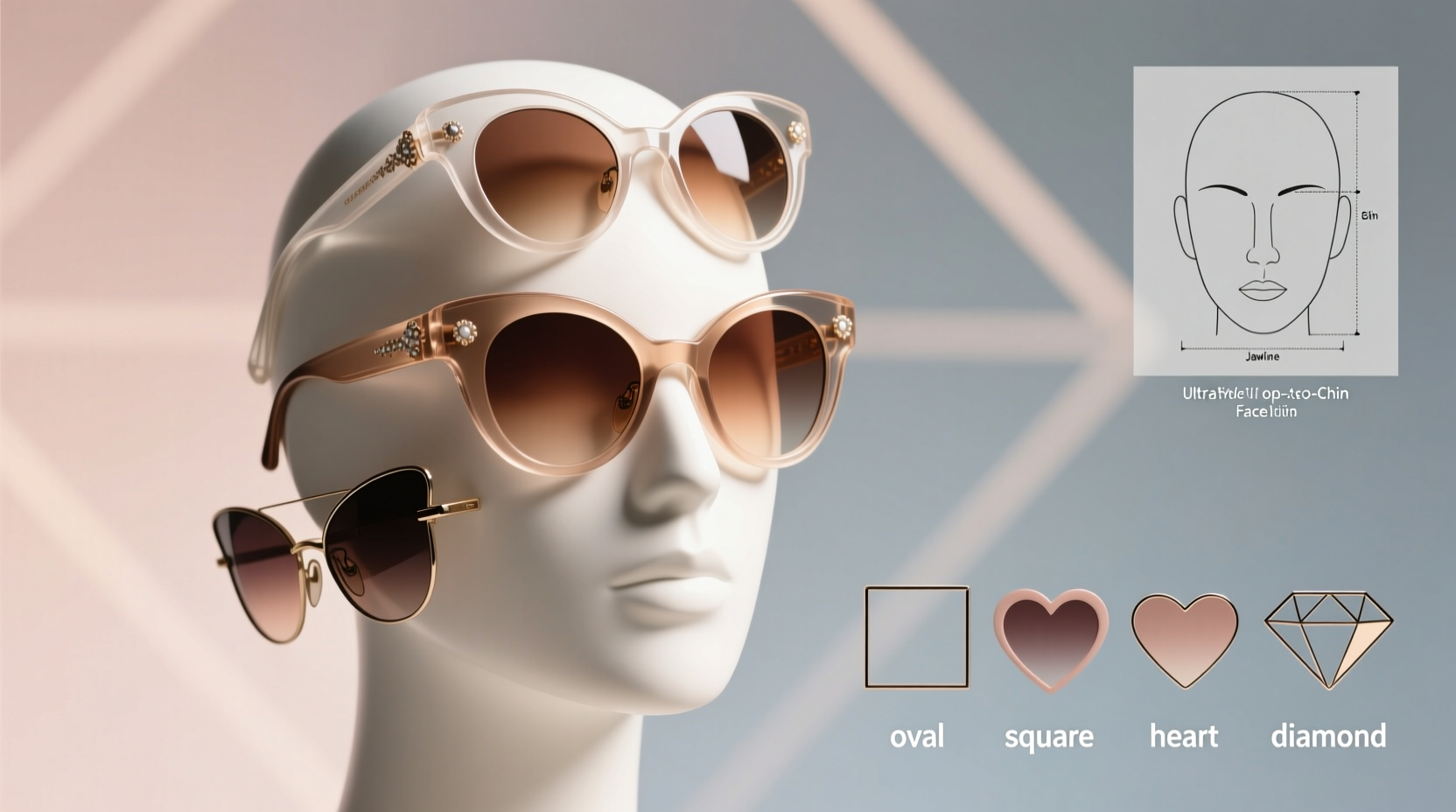Butterfly sunglasses have made a powerful comeback, blending retro charm with modern flair. Their distinctive upswept outer edges add drama and elegance, making them a favorite among fashion-conscious wearers. But while they look stunning on paper, not every pair suits every face. The key to pulling off this bold style lies in choosing a frame that harmonizes with your facial structure. Understanding how different shapes interact with your features ensures you don’t just wear the sunglasses—you own them.
Understanding Butterfly Sunglasses: More Than Just Style

Butterfly sunglasses are characterized by their wide lenses, narrow bridge, and outward-curving temples that resemble wings. Originally popularized in the 1950s and 60s, they were designed to complement the soft, rounded silhouettes of vintage glamour. Today’s versions range from subtle curves to exaggerated cat-eye lifts, offering versatility across aesthetics.
Unlike standard aviators or round frames, butterfly styles emphasize the outer corners of the eyes. This creates an optical lift, often elongating the face and drawing attention upward. Because of this dramatic effect, fit becomes critical—especially in relation to your face shape.
Identifying Your Face Shape: The Foundation of Frame Selection
The first step in selecting flattering butterfly sunglasses is accurately identifying your face shape. Most people fall into one of six primary categories: oval, round, square, heart, diamond, or oblong. To determine yours, stand in front of a mirror, pull your hair back, and trace the outline of your face with a washable marker or lipstick.
Measure these key areas:
- Forehead width (widest part)
- Cheekbone width (from one zygomatic arch to the other)
- Jawline length and angle
- Face length (hairline to chin)
Compare your measurements using this guide:
| Face Shape | Key Traits | Ideal Frame Goal |
|---|---|---|
| Oval | Balanced proportions, slightly longer than wide | Maintain symmetry; avoid oversized frames |
| Round | Equal width and length, soft jawline | Add angles and height; elongate the face |
| Square | Strong jaw, broad forehead, angular features | Softening angles; balance lower face |
| Heart | Wide forehead, narrow chin, pointed jaw | Balance top-heavy appearance |
| Diamond | Narrow forehead and jaw, wide cheekbones | Highlight eyes, soften cheek prominence |
| Oblong | Longer than average, high forehead | Add width, reduce perceived length |
“Frame choice isn’t about following trends—it’s about enhancing what’s already beautiful. A well-chosen butterfly sunglass can elevate facial harmony.” — Lena Torres, Eyewear Stylist & Vision Consultant
Matching Butterfly Frames to Your Face Shape
Oval Faces: Versatility at Its Best
If you have an oval face, most butterfly styles will work. Focus on frames that maintain proportion—avoid overly large designs that overpower your delicate balance. Medium-width butterflies with gentle uplift complement your natural symmetry.
Round Faces: Seek Angular Contrast
For round faces, choose butterfly sunglasses with pronounced upward sweeps and structured edges. These create vertical emphasis, countering softness and giving the illusion of a slimmer face. Avoid circular or shallow curves that mimic your face’s shape.
Square Faces: Soften the Edges
Select butterfly frames with smooth curves and elevated outer corners to counteract strong jawlines. Oversized butterfly styles with rounded lenses draw attention upward and soften angular features. Steer clear of sharp, boxy designs that amplify harsh lines.
Heart-Shaped Faces: Balance the Forehead
Frames with wider bottom edges or decorative temples balance a broader forehead. Cat-eye butterfly styles—where the outer tips rise dramatically—are ideal. They align with your natural facial taper, creating cohesion between forehead and chin.
Diamond Faces: Highlight the Eyes
Your cheekbones are your standout feature. Choose butterfly sunglasses with detailing near the temples or brows to accentuate the eyes. Rimless or semi-rimless butterfly variants keep focus upward without overwhelming your narrow forehead and chin.
Oblong Faces: Add Width, Not Length
Avoid tall, narrow butterfly frames—they exaggerate length. Instead, opt for wider designs with bold temple details or colored rims. Wraparound butterfly styles also work well, as they visually shorten the face by increasing horizontal presence.
Step-by-Step Guide: Finding Your Perfect Pair
Finding the right butterfly sunglasses doesn’t have to be guesswork. Follow this practical sequence to make a confident decision:
- Assess your face shape using the measurement method described earlier.
- Try on multiple pairs in natural light, preferably at a store with return options if shopping online.
- Check alignment: The frame’s top should follow your eyebrow line without pressing down.
- Evaluate coverage: Lenses should fully shield your eyes from UV rays without touching your lashes.
- Test stability: Move your head side to side—frames shouldn’t slide or pinch.
- Observe proportions: Hold a hand mirror and assess whether the frame enhances or overwhelms your features.
- Consider lifestyle use: If worn daily, prioritize lightweight materials like acetate or titanium.
Mini Case Study: Sarah’s Transformation with the Right Fit
Sarah, a 34-year-old graphic designer with a heart-shaped face, loved the idea of butterfly sunglasses but felt they always looked “too much” on her. She tried several trendy pairs—each time feeling like the wide tops drew too much attention to her forehead.
After consulting a stylist, she switched to a vintage-inspired butterfly frame with thicker lower rims and subtle gold accents on the temples. The design balanced her facial proportions, drawing focus toward her eyes instead of her brow. “It’s like the glasses finally worked *with* my face,” she said. “I get compliments every time I wear them.”
Common Mistakes to Avoid
- Choosing size over fit: Large frames may look fashionable, but if they extend beyond your cheekbones, they distort your silhouette.
- Ignoring bridge comfort: A poorly fitting bridge causes slipping and pressure on the nose, especially during extended wear.
- Overlooking lens quality: Style matters, but 100% UV protection is non-negotiable for eye health.
- Matching only to outfits: While color coordination is important, facial harmony should take priority.
Frequently Asked Questions
Can butterfly sunglasses work for men?
Yes—though less common, men with oval, square, or diamond face shapes can carry bold butterfly frames, especially in minimalist black or tortoiseshell. The key is proportion: sleeker profiles with subtle wingtips tend to integrate more naturally into masculine styling.
Are oversized butterfly sunglasses still in style?
Oversized versions remain popular, particularly for fashion-forward looks and sun protection. However, they suit oval, square, and heart-shaped faces best. Round or oblong faces may find them overwhelming unless carefully proportioned.
How do I know if the color complements my skin tone?
Cool undertones (pink, blue veins) pair well with black, silver, or jewel tones. Warm undertones (golden, green veins) shine with tortoiseshell, gold, or amber. Neutral tones can experiment freely. When in doubt, classic black or brown offers universal appeal.
Final Checklist Before You Buy
- ✅ Identified my face shape accurately
- ✅ Chosen a frame that balances my facial proportions
- ✅ Confirmed UV400 or 100% UV protection
- ✅ Tested for comfort (no pinching or sliding)
- ✅ Ensured lenses are distortion-free
- ✅ Selected a color that matches my wardrobe and skin tone
- ✅ Verified return policy (if buying online)
Conclusion: Step Into the Sun With Confidence
Finding the perfect butterfly sunglasses isn’t about chasing trends—it’s about celebrating your individuality. When chosen with intention, these iconic frames do more than protect your eyes; they enhance your expression, refine your profile, and become an extension of your personality. Whether you have a softly rounded face or a sharply defined jawline, there’s a butterfly design that’s made for you. Take the time to understand your shape, try thoughtfully, and trust what feels right. The perfect pair isn’t just seen—it’s felt.









 浙公网安备
33010002000092号
浙公网安备
33010002000092号 浙B2-20120091-4
浙B2-20120091-4
Comments
No comments yet. Why don't you start the discussion?